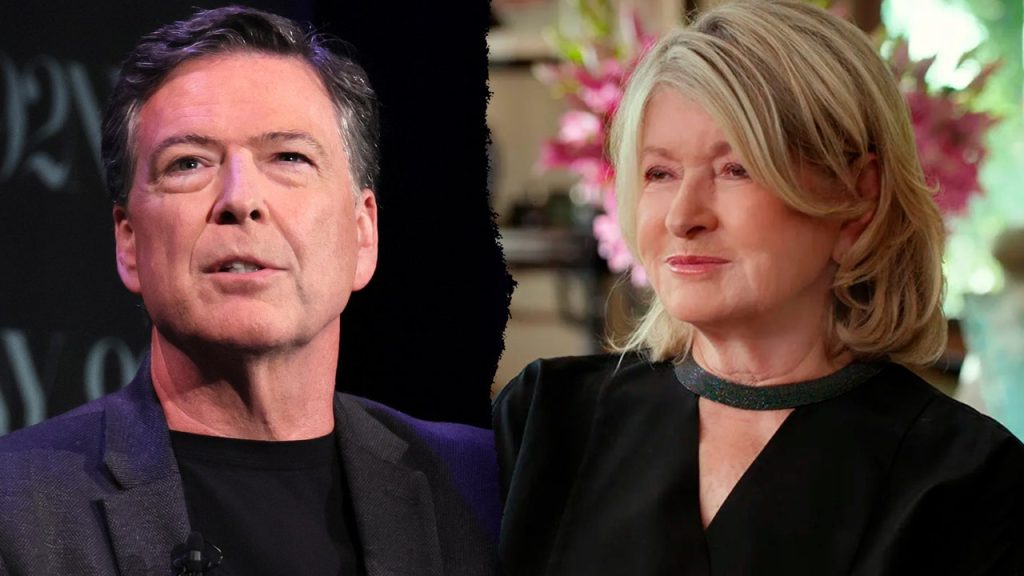In the recently released Netflix documentary titled “Martha,” Martha Stewart reflects on her past, particularly on the federal obstruction of justice trial that significantly impacted her life and career. Stewart, now 83, recollects the experience of being prosecuted and serving five months in prison starting in 2004. This legal ordeal stemmed from charges brought against her related to insider trading involving her friend’s company, ImClone. Director James Comey, who was then the U.S. Attorney leading the prosecution, accused her of lying to the FBI and investors. Stewart characterizes her indictment as part of a broader trend of targeting high-profile individuals, stating, “It was horrifying… I had to go through that to be a trophy for these idiots in the U.S. Attorney’s office.”
The public narrative surrounding Stewart’s case was fraught with contention, particularly regarding the motivations behind the prosecution. During the investigation, Stewart’s attorney questioned whether her status as a celebrity and prominent woman influenced the decision to bring charges against her, suggesting that she was an example made out of a successful woman in a predominantly male business world. Critics argue that the prosecution’s urgency to hold Stewart accountable reflects a pattern in the Southern District of New York to leverage high-profile cases to send broader societal messages. Her attorney maintained that there might have been ulterior motives behind the charges, suggesting that they could have been spurred by her celebrity status rather than a straightforward pursuit of justice.
Legal experts contribute their insights, noting that the shift in charges from insider trading to obstruction of justice often occurs when the core allegations are challenging to prove. Craig Greening, a criminal defense attorney, emphasizes the notable severity of Stewart’s punishment in light of the evidence presented, raising questions about proportionality and fairness in how celebrity cases are pursued. He posits that her experience might also reflect broader issues of selective prosecution that disproportionately target public figures, especially women, amplifying the scrutiny they face in their professional lives.
Throughout the documentary, Stewart expresses a mixture of disdain and acceptance regarding her past. She offers a candid assessment of her trial, remarking that the experience consumed a small fraction of her life, saying, “the trial and the actual incarceration was less than two years out of an 83-year life.” Notably, she jokingly referred to her sentencing as a “vacation,” indicating her resilience in processing a challenging period. Her comments display a complicated relationship with her past, as she grapples with feelings of being exploited by the legal system while also recognizing the insignificance of that chapter in her broader life story.
In a broader cultural context, Stewart’s narrative serves as a critique of the legal system’s handling of high-profile women. The documentary highlights how her celebrity and success positioned her uniquely within societal expectations and scrutiny, which may have led to an uneven application of justice. Stewart’s sentiments resonate with ongoing dialogues about gender and power dynamics in the business world, where women leaders often face public and legal challenges that their male counterparts may not encounter at the same level.
Reflecting on her journey, Stewart’s portrayal in the documentary shifts towards a celebration of her success and impact as a cultural icon. Director R.J. Cutler depicts her as complex, a visionary who understood the nuances of branding and media long before many others. Ultimately, “Martha” emerges as both a reflection on Stewart’s tumultuous past and a testament to her resilience and enduring influence in American culture and business, encapsulating the multifaceted identity of a woman who has navigated the challenges of fame and the legal system while carving out a lasting legacy.

